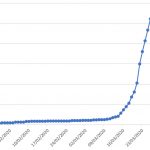The IEEE Digital Privacy Workshop takes place as a virtual event from 07 – 08 October 2021. This two day workshop… Read More



The IEEE Digital Privacy Workshop takes place as a virtual event from 07 – 08 October 2021. This two day workshop… Read More

Critical thinking is a mainstream part of some educational traditions, but is it universally valued? Only some truths have an objective basis and many others depend on the eye of the beholder. No real society values everyone equally.

IEEE SSIT: Who we are, what we care about, and our history within the IEEE organization.

Systems can be designed using methodologies like value-sensitive design, and operationalized, to produce socio-technical solutions to support or complement policies that address environmental sustainability, social justice, or public health. Such systems are then deployed in order to promote the public interest or enable users to act (individually and at scale) in a way that is in the public interest toward individual and communal empowerment.

The nuclear anxiety of the Cold War now seems quaint. While speculative writers of the late 20th-early 21st centuries have largely relegated nukes to the past, the situation at San Onofre reminds us of our sins — of assuming the future would take care of the future. The U.S. Nuclear Regulatory Commission enabled this consensual hallucination. Did it take climate change into consideration?

The author’s intention is to study cases that “suggest an architectural history of spaces that have been generated or extensively reconstituted by electric light.” His thesis is “the electric light changes the underlying nature of a space.”

If you are an undergraduate student interested in examining the social implications of technology, submit your work for a chance to publish your work and win cash prizes!

Reflective thinking allows humans to examine the past with intentionality, learn from what happened, and adapt accordingly. We explore thoughts, feelings, and actions, mine out insights, and enhance awareness.

Register Today for ISTAS 2021!

Morris’s book is difficult to read, not only because it is written in reverse chronological order, but because he does not understand the technology he is writing about.

The fiercest public health crisis in a century has elicited cooperative courage and sacrifice across the globe. At the same time, the COVID-19 pandemic is producing severe social, economic, political, and ethical divides, within and between nations. It is reshaping how we engage with each other and how we see the world around us. It urges us to think more deeply on many challenging issues—some of which can perhaps offer opportunities if we handle them well. The transcripts that follow speak to the potency and promise of dialogue. They record two in a continuing series of “COVID-19 In Conversations” hosted by Oxford Prospects and Global Development Institute.

Tuesday 5.30 – 7.00 p.m. (EDT), 2.30 pm – 4.00 pm (MST), Wednesday 7.30 am – 9.00 am (AEST); ;– “IP Location Services and Automated Biometric Recognition”

Tuesday, August 10 7:30 pm – 10:45 pm USA Eastern Time (Wednesday Aug 11 9:30 a.m.-12:45 pm Australian Eastern Time)
Webinar: Emerging Location-based Services and Technologies, GeoSurveillance and Social Justice Issues

Digital discrimination is becoming a serious problem, as more and more decisions are delegated to systems increasingly based on artificial intelligence techniques such as machine learning. Although a significant amount of research has been undertaken from different disciplinary angles to understand this challenge—from computer science to law to sociology— none of these fields have been able to resolve the problem on their own terms. We propose a synergistic approach that allows us to explore bias and discrimination in AI by supplementing technical literature with social, legal, and ethical perspectives.

When we see a built world, we tend to take its permanence and stability for granted. For those who have chosen coastal homes, that built world goes back at least 50 years, with few residents ever realizing that oceans, lakes, and rivers are living entities constantly in motion. The average person relies upon experts such as architects and civil engineers, and supposed guardrails such as state building codes and homeowner associations, to assess safety when purchasing property. But the 21st-century assumption that the built world is stable is a risky bet. Especially in “business-friendly” states.

Disease prevention due to successful vaccination is a double-edged sword as it can give the illusion that mass vaccination is no longer warranted. Antivaccination movements are not completely absent throughout history, but for example, most recently, parents have been declining childhood vaccines at alarming levels [2, S9]. Safety concerns and misinformation seem to be at the forefront of these movements.

Join the Student Discussion Forum in association with ASU PIT on IP Location Services and Automated Biometric Recognition!

Few people would celebrate modern infrastructure networks as magnificent beacons of our civilization: our powerlines and pipelines are drab, unsightly intrusions on the landscape. Reflecting on this, the philosopher Alain de Botton points out the Roman aqueduct at Pont Du Gard in Southern France, which is now a famous tourist attraction even though it was built for the dull task of supplying municipal water. Wisely, the Romans built it, and many others, for both beauty and function, brightening citizens’ views while slaking their thirst. Indeed, so lovely is the Roman aqueduct of Segovia that it is featured in the emblem of that province.

This SSIT Guest Lecture on “The Great Reset: Pandemic, Society and IEEE SSIT” was presented by Mr. Satish Babu, President… Read More

Arizona continues to build, build, build, and instead of requiring new residents to adapt to the climate, city governments and developers market the very bad idea that the desert can be made green, and thus more desirable.